As the foreman began reciting the Australian jury’s decision in each of the 27 child sex abuse charges brought against former Adass Israel School principal Malka Leifer on Monday, her three accusers may have thought their long nightmare was not over.
After each of the first five charges read by Victoria County Court Judge Mark Gamble, the foreman responded with a verdict of “not guilty.”
But as sisters Nicole Meyer, Elly Sapper and Dassi Erlich gripped each other’s hands sitting in the back of the gallery, the momentum shifted and the foreman returned 18 guilty verdicts in the remaining 22 charges.
“There is a collective win in her being found guilty [on most of the charges]. It’s something that we’ve dreamed of and worked toward for so long. That collective win of a guilty verdict — even on [only] 18 of the charges — is incredible for us,” Meyer told The Times of Israel in a phone interview hours later.
The three had fought bitterly to secure their former teacher’s extradition from Israel, where she fled 15 years ago, to Melbourne, where the crimes had taken place.
But the oldest sister did not hide her feeling that the victory was bittersweet. Those first five charges were the only ones related to her accusations against Leifer from 2003-2006. The remaining 22 were tied to testimony given by Sapper and Erlich.
“The fact that I didn’t get my own justice is something I’m going to have to [grapple] with personally,” Meyer said.
“Especially as a religious woman and representing religious victims who have an even harder time coming forward, I feel like I let everyone down a bit, but I hope not,” Meyer added, revealing the extent of the burden she’s been carrying for the past two decades.
In a wide-ranging interview, Meyer reflected on Monday’s long-elusive verdict, compared the experiences enduring the Israeli and Australian legal systems and looked forward to what might be next for her — something she hasn’t been able to do for a very long time.
The long, long road to justice
Meyer’s pursuit of justice has made headlines across the globe, largely due to what unfolded after Erlich first came forward with her allegations against Leifer in 2008. It was then that the board of the ultra-Orthodox girls’ school in the highly insular Melbourne community purchased the Israeli principal a plane ticket and whisked her back to the Jewish state, where she had come from eight years earlier.
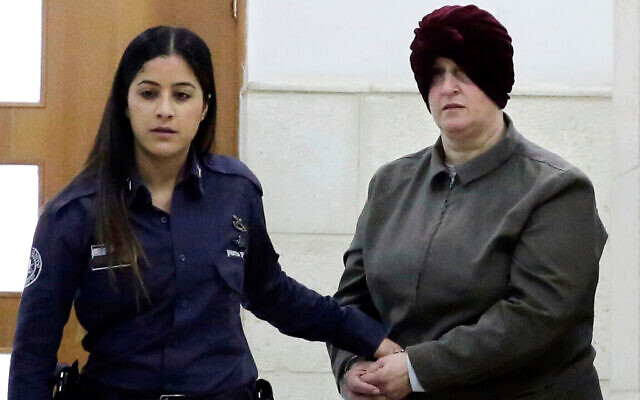
At that point, the case ground to a halt. As has been the case for a notable number of sex abusers, Leifer was able to live freely in Israel and in an isolated settlement in the northern West Bank before she was arrested for the first time in 2014.
Leifer then began feigning severe mental illness to delay proceedings and even managed to convince a Jerusalem court in 2016 to suspend the trial due to her supposed condition. It wasn’t until a team of private detectives came forward with footage of Leifer leading a fully functional life that she was rearrested in 2018.
But the delays did not end there. Senior Orthodox rabbis began personally vouching for Leifer; others in the community bankrolled her legal expenses.
Despite the mounting evidence demonstrating Leifer’s sound mental state, the Jerusalem District Court continued to heed defense requests for hearings to determine her fitness for extradition. Almost inexplicably, a state psychiatrist flip-flopped in his testimony, further dragging out the process.

In 2019, it was revealed that then-deputy health minister Yaakov Litzman was behind the doctor’s decision to reverse his diagnosis and find Leifer unfit for trial. The senior lawmaker from the Hasidic Gur sect pressured the physician to block the extradition of Leifer, who has ties to his ultra-Orthodox community. Litzman pleaded guilty to a charge of breach of trust related to the case last year, but managed to avoid jail time and only paid a $940 fine.
Even after these revelations, the Jerusalem District Court continued to hold hearings on Leifer’s mental fitness until she was finally found fit for extradition and sent back to Australia in January 2021.
The proceedings required over 70 court dates and placed significant strain on otherwise close ties between Jerusalem and Canberra. The tension was felt even more poignantly in relations between Israel and Australia’s Jewish community, long known as one of the Diaspora’s most loyal, which was collectively shocked at the degree of pain that officials in their home away from home were willing to inflict on abuse victims and their supporters.
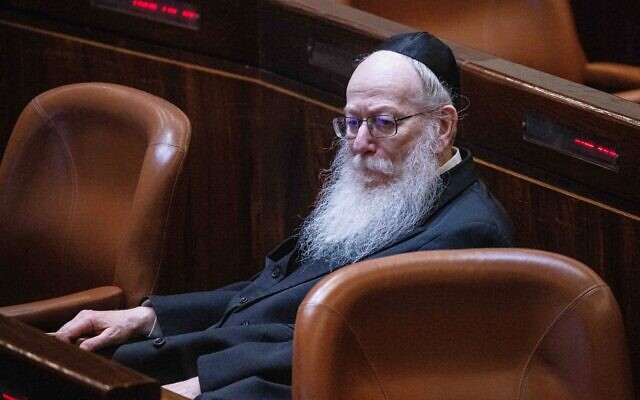
Israeli obstacles
In her Monday interview, Meyer admitted that she hadn’t yet processed the Israel chapter of the legal proceedings, as she’s been entirely focused on the Melbourne-based trial that followed.
But asked how she compares the two justice systems, Meyer said that “in Israel, we had no voice. Here [in Australia], we had a voice, though not always enough of one.”
The 37-year-old lamented what she described as the Victoria court’s refusal to share the full extent of Leifer’s abuse due to various gag orders that were put in place.
“We’re now hopefully ready to be a voice for other survivors of abuse, each of us in a different way.”
“But knowing that Malka Leifer could not manipulate the system as she did in Israel was a big relief,” Meyer said, noting that the former Adass Israel principal ceased feigning mental illness upon arriving back in Australia.
She went as far as speculating that Leifer would never have been returned to Australia had she and her sisters not launched a public campaign six years ago, which included flying to Israel several times, to advocate for their former teacher’s extradition.
Explaining what she meant by lack of voice, Meyer recalled sitting in the Jerusalem District Court and feeling like a mere spectator, barred from testifying “even though the evidence of [Leifer’s] fraud was so clear. Her lawyers tried to kick us out of the courtroom as if we had no right to be there.”
“So yes, Israel has something to answer for, and I believe Litzman does as well,” Meyer said. “But we got her [to Australia], and she’s guilty, despite every single obstacle we faced at every single step [placed by those in] the highest positions of power in Israel.”
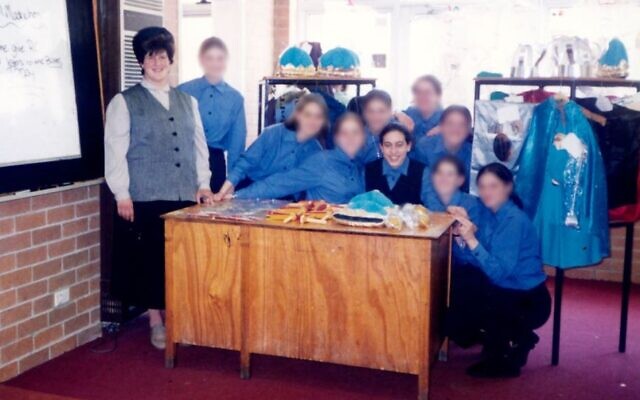
Australian judicial overhaul needed?
Meyer said the past two years in Australia were far more difficult than she expected.
“Yes, we got our day in court, but I wasn’t able to share my entire truth.”
The court barred Meyer from discussing what she said were additional years of abuse by Leifer that took place after she got engaged as a teenager and still remained unaware of her former teacher’s hold on her due to the years of trauma and lack of proper sex education.
The jury was only allowed to hear her testimony regarding five charges, rather than what Meyer insisted was “an entire story of six and a half years of abuse.”
She surmised that the prosecution decided to excise much of her experience with Leifer from the case because it would be harder for the average jury member to comprehend.
What remained, though, was only a narrow part of her original testimony that “lacked the broader context” and that the defense “tore apart” for three hours in a closing argument that Meyer characterised as “re-traumatising.”
Meyer maintained that the limited picture received by the jury was what might have led to the not guilty verdicts in the charges related to her testimony.
She argued that the Australian legal system needs reform, saying that abuse victims who have gone through it consistently end up feeling more traumatised than they were beforehand.
“So much leans on the rights of the accused. Malka Leifer had many more rights than we did. She got to sit through the whole proceeding in the courtroom and we didn’t,” Meyer said. “There needs to be a massive overhaul to ensure the rights of victims, alongside the rights of the accused.”
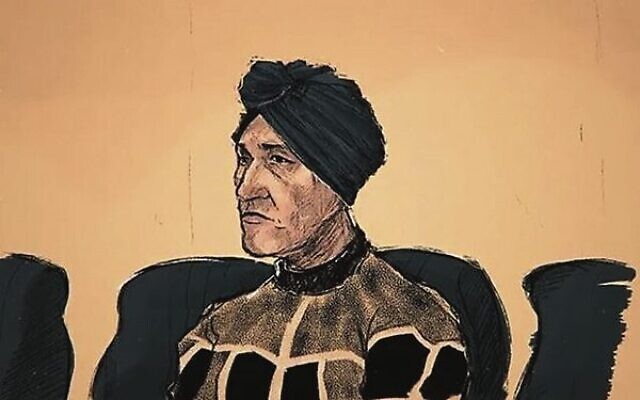
Photo: Mollie McPherson/AAP Image via AP via Times of Israel
No regrets
Despite the partial guilty verdict, Meyer was adamant that she had no regrets over pursuing charges against Leifer.
“Going through it and paving that path for other people… is something that holds us up,” she said. “We don’t regret going through this journey because she’s now off the streets.
“She fought so hard not to be convicted, and we proved that we could fight just as hard.”
As the jury foreman finished reading the verdict, Meyer turned around five times and looked straight at a solemn Leifer. “You don’t have my power. I’m taking it back from you now,” she recalled thinking to herself.
Despite not securing the guilty verdicts that her two sisters did, Meyer said she didn’t feel alone on Monday.
“The three of us sat together in court and did not leave each other’s side. Both of them are feeling for me so strongly, and wishing that even just one [of the] charges [related to me] had been guilty so that we could each get justice,” she said.
“But the belief we have of each other means that the guilty verdicts Leifer received were on behalf of all of us.”
Meyer said she is now focused on processing Monday’s verdict and getting through Leifer’s sentencing, expressing hope that there will not be an appeal process.
“For the three of us, we all hope to put this behind us and move forward, knowing that we did the right thing by getting her off the streets,” she said. “We’re now hopefully ready to be a voice for other survivors of abuse, each of us in a different way.”
Times of Israel

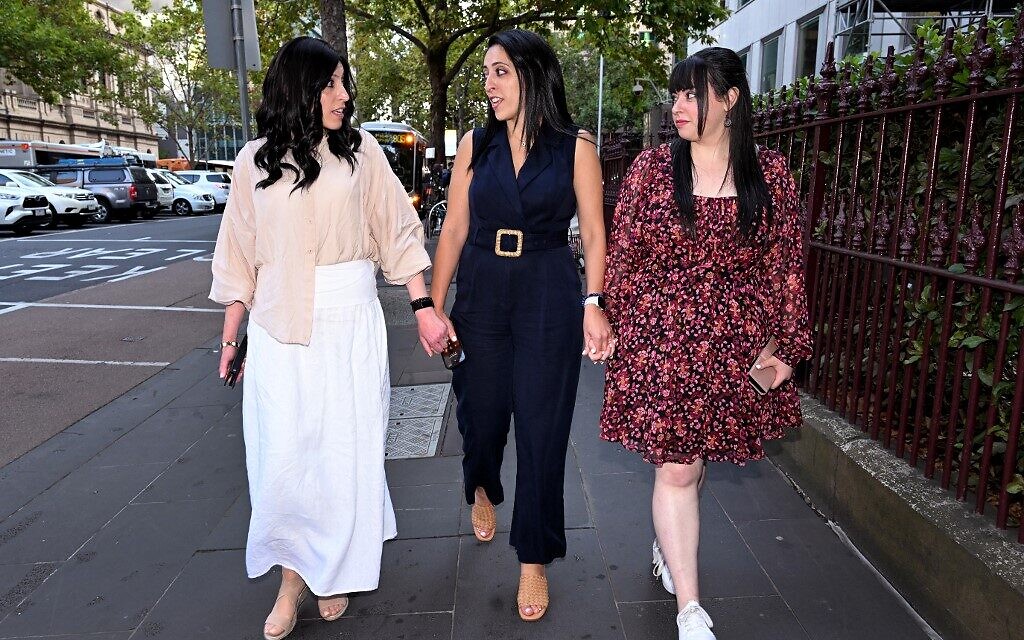
comments